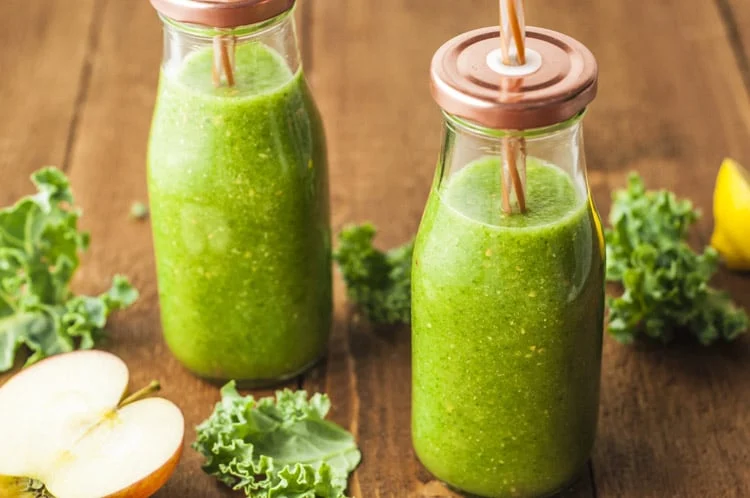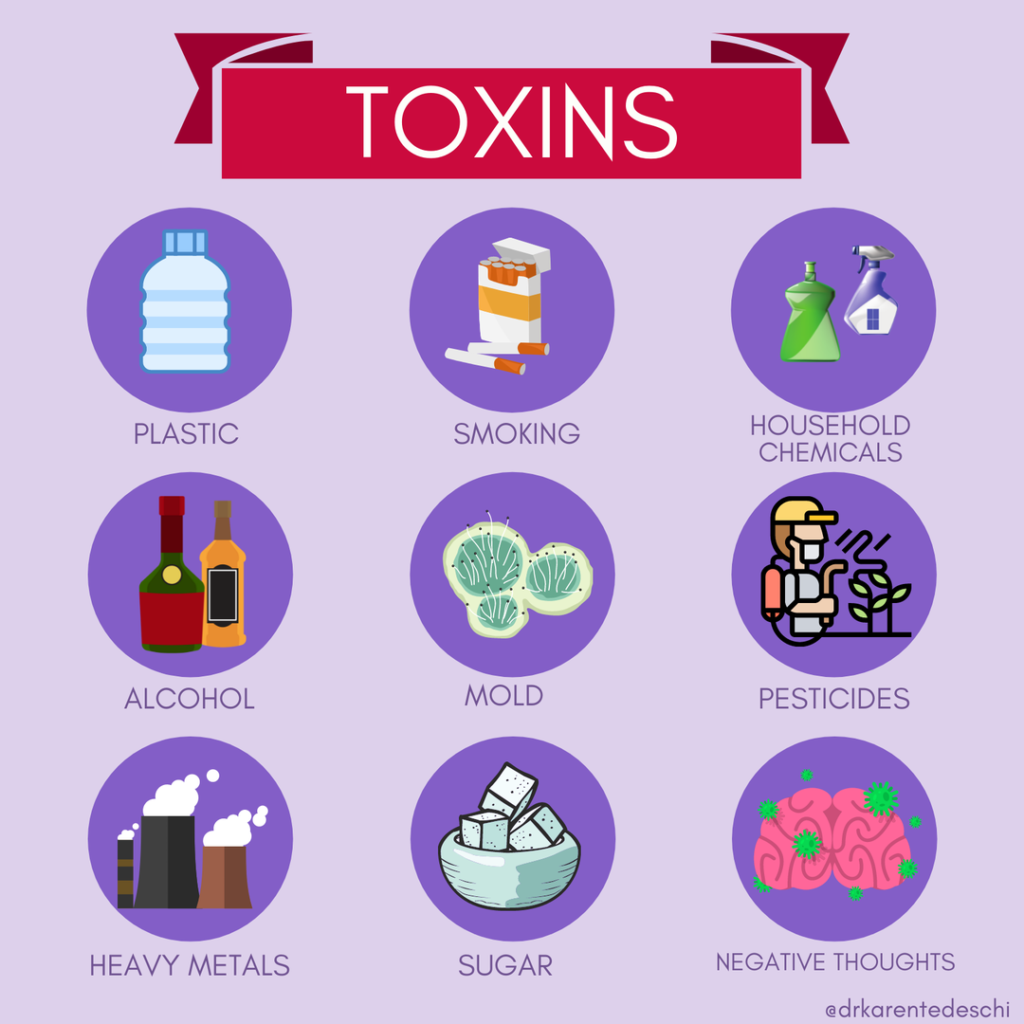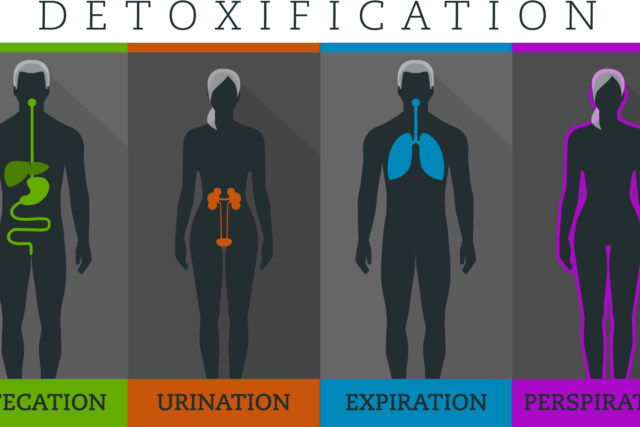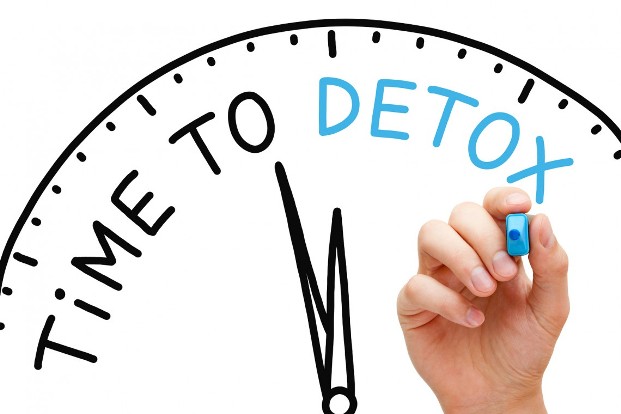Unlock the secrets to a healthier you with ‘The Essence of Clean: Detoxifying Naturally for a Better You.’ Discover effective, natural ways to detoxify your body, reduce toxins, and embrace a cleaner lifestyle for enhanced well-being and vitality. Start your journey to detoxify and rejuvenate today.
Table of Contents
Introduction
Detoxification, or detox, is increasingly recognized as a pivotal element of maintaining or regaining health. In a world brimming with toxins from the air we breathe to the food we eat, the significance of a natural cleanse cannot be overstated. This guide delves into the essence of detoxification, underscoring natural methods to rejuvenate your body and spirit.
Understanding Detoxification
Why is Detox Important?
Our bodies are equipped with a sophisticated system designed to handle detoxification, primarily through organs such as the liver, kidneys, intestines, lungs, and skin. However, the increasing exposure to toxins in modern life can overwhelm these systems, leading to a range of health issues, including fatigue, digestive problems, skin issues, and chronic diseases.
Detoxification is important because it supports the body’s natural ability to cleanse itself, enhancing its function and resilience. By aiding detoxification, we can help reduce the burden on our detox organs, improving our energy levels, boosting our immune system, and contributing to better overall health.
How Does Detoxification Work?
- The Liver: The liver plays a central role in detoxifying harmful substances. It processes toxins for elimination, transforming fat-soluble toxins into water-soluble forms that can be excreted through urine or bile.
- The Kidneys: The kidneys filter the blood to remove waste and toxins, excreting them through the urine. Maintaining adequate hydration is crucial for kidney function and effective detoxification.
- The Intestines: The intestines eliminate toxins through the feces. A healthy gut flora and regular bowel movements are essential for preventing the reabsorption of toxins.
- The Lungs: The lungs expel carbon dioxide and other gaseous wastes through exhalation. Deep breathing exercises can enhance lung capacity and detoxification.
- The Skin: The skin eliminates toxins through sweat. Activities that induce sweating, such as exercise and sauna use, can support the skin’s role in detoxification.
Enhancing Natural Detox
You can support your body’s detox processes through various lifestyle changes and natural remedies:
- Dietary Adjustments: Consuming a diet rich in fruits, vegetables, lean proteins, and whole grains can provide the necessary nutrients and antioxidants that support detoxification. Limiting processed foods, sugars, and unhealthy fats is also beneficial.
- Hydration: Drinking sufficient water is essential for detoxification. Water helps to flush toxins through the kidneys and supports overall cellular function.
- Exercise: Regular physical activity increases blood circulation and induces sweating, aiding the removal of toxins through the skin.
- Reducing Exposure: Minimizing contact with toxins by choosing organic foods, using natural cleaning products, and avoiding polluted environments can decrease the load on your detoxification systems.
- Stress Management: Stress can negatively impact the detoxification process. Practices such as meditation, yoga, and deep breathing can reduce stress levels, supporting the body’s natural detox capabilities.
Understanding and supporting your body’s detoxification process is a foundational aspect of maintaining optimal health. By incorporating detox-friendly practices into your lifestyle, you can enhance your body’s natural ability to cleanse and renew, leading to improved vitality and well-being.
The Natural Detox Process
Key Organs Involved in Detoxification
Several organs and systems in the body play critical roles in the detox process:
- The Liver: Often considered the body’s primary detoxification organ, the liver filters and removes toxins from the blood. It converts toxic substances into harmless agents that can be easily excreted from the body through urine or feces.
- The Kidneys: The kidneys continuously filter the blood to remove waste products and excess substances through urine. They are essential in regulating water balance and removing soluble toxins.
- The Colon (Intestines): The colon eliminates toxins through the feces. A healthy digestive system ensures that waste moves efficiently through the intestines and out of the body, reducing the risk of toxic reabsorption.
- The Lungs: The lungs are responsible for expelling carbon dioxide, a waste product of metabolism, from the bloodstream. Deep breathing and physical activity can enhance the lungs’ ability to detoxify.
- The Skin: As the body’s largest organ, the skin plays a crucial role in detoxification through sweating. Sweating enables the body to eliminate salts, heavy metals, and other toxins.

Supporting the Natural Detox Process
Supporting your body’s natural detoxification processes can lead to improved health and vitality. Here are some ways to enhance your body’s ability to detox:
- Maintain a Balanced Diet: Consuming a diet rich in fruits, vegetables, whole grains, and lean proteins can provide your body with the nutrients it needs for detoxification. Certain foods, such as leafy greens, beets, garlic, and cruciferous vegetables like broccoli, are particularly effective in supporting liver function and detoxification.
- Stay Hydrated: Water is essential for the detox process. It aids the kidneys in flushing out toxins and helps maintain healthy digestive function.
- Exercise Regularly: Physical activity increases blood circulation and promotes the elimination of toxins through sweat. Incorporating regular exercise into your routine can significantly boost your body’s natural detoxification processes.
- Get Adequate Sleep: Sleep allows your brain to reorganize and recharge itself, as well as remove toxic waste byproducts that have accumulated throughout the day. Ensuring you get enough quality sleep is crucial for optimal detoxification.
- Reduce Toxin Exposure: Limit exposure to toxins by choosing organic foods, avoiding processed foods and artificial ingredients, using natural cleaning and personal care products, and minimizing the use of plastic.
- Practice Stress-Reduction Techniques: Stress can negatively impact the body’s ability to detoxify. Engaging in stress-reduction practices like meditation, yoga, and mindfulness can support overall detoxification and well-being.
Lifestyle Changes for Better Detox
1. Opt for a Clean, Nutrient-Rich Diet
A diet rich in fruits, vegetables, whole grains, lean proteins, and healthy fats provides essential nutrients that support the detox organs. Foods high in antioxidants, fiber, and certain vitamins and minerals can boost your body’s detox pathways. Incorporate detoxifying foods like leafy greens, berries, beets, garlic, turmeric, and green tea into your meals.
2. Stay Hydrated
Water is essential for the body’s detoxification process, aiding in digestion, nutrient absorption, and toxin elimination through urine and sweat. Aim to drink at least 8 glasses of water a day, more if you’re active or live in a hot climate. Herbal teas and infused waters with fruits or cucumber can also contribute to your daily fluid intake.
3. Increase Physical Activity
Regular exercise promotes circulation and sweating, both of which help remove toxins from the body. Physical activity also boosts overall metabolism, which enhances the detoxification process. Find a form of exercise you enjoy, whether it’s walking, cycling, swimming, or yoga, and aim for at least 150 minutes of moderate activity per week.
4. Prioritize Sleep
Sleep is a crucial yet often overlooked component of the body’s natural detox process. During sleep, the brain’s cleansing process removes toxins that have accumulated throughout the day. Aim for 7-9 hours of quality sleep per night to support your body’s natural detoxification systems.
5. Manage Stress
Chronic stress can impede the body’s ability to detoxify effectively. Stress management techniques such as meditation, deep breathing exercises, yoga, or spending time in nature can help reduce the impact of stress on your detoxification processes.
6. Limit Exposure to Toxins
Reducing your exposure to external toxins is key to supporting your body’s detox efforts. Use natural cleaning and personal care products, choose organic food when possible, avoid smoking and excessive alcohol consumption, and minimize contact with pollutants and chemicals.
7. Support Digestive Health
A healthy digestive system is essential for effective detoxification. Fiber-rich foods, probiotics, and adequate hydration support gut health and regular bowel movements, helping to eliminate toxins from the body.
8. Practice Mindful Eating
Paying attention to your body’s hunger and fullness cues can prevent overeating and ensure you’re giving your body the nutrients it needs without excess. Mindful eating also encourages you to make healthier food choices that support detoxification.
9. Consider Detox Therapies
Certain therapies like dry brushing, sauna use, or lymphatic drainage massages can complement your body’s natural detoxification processes. These therapies can stimulate circulation and promote the elimination of toxins through sweat and lymphatic systems.
Detoxifying Foods and Drinks
Foods
- Leafy Greens: Vegetables like spinach, kale, and Swiss chard are packed with chlorophyll, which helps cleanse the bloodstream and detoxify the body by neutralizing toxins.
- Cruciferous Vegetables: Broccoli, Brussels sprouts, cabbage, and cauliflower contain glucosinolates, which support liver function and aid in the elimination of toxins.
- Beets: Rich in antioxidants and other nutrients, beets support liver detoxification and are known for their blood-purifying properties.
- Garlic: Garlic has strong antibacterial and antiviral properties. It contains allicin and selenium, which help cleanse the liver and support the immune system.
- Ginger: Ginger stimulates digestion, circulation, and sweating, all of which are key components of the detox process. It also helps to cleanse the build-up of waste and toxins in the colon, liver, and other organs.
- Lemons and Limes: These citrus fruits are high in vitamin C, a powerful detoxifying antioxidant. They aid in converting toxins into a water-soluble form that can be easily excreted from the body.
- Turmeric: This spice contains curcumin, a compound with powerful anti-inflammatory and liver-protecting properties. It enhances the body’s ability to detoxify, while also supporting the natural inflammation response.
- Apples: High in fiber, apples help to cleanse the intestines and liver. They also contain compounds that can aid in removing metals and food additives from the body.
Drinks
- Green Tea: Packed with antioxidants, green tea boosts liver function and aids in detoxifying the body. It also helps to enhance hydration, which is essential for flushing out toxins.
- Lemon Water: Starting your day with lemon water can stimulate the liver and aid digestion, helping to flush out toxins and alkalize the body.
- Detox Water: Infusing water with fruits, vegetables, and herbs like cucumber, mint, and berries can make detoxification more enjoyable and hydrating.
- Dandelion Tea: Dandelion root tea acts as a diuretic, supporting the liver and kidney in flushing out toxins. It’s also rich in antioxidants and supports healthy digestion.
- Apple Cider Vinegar: A small amount of apple cider vinegar in water can help to cleanse the liver and lymphatic system, aiding in the removal of toxins from the body.
- Smoothies: Smoothies made with a mix of detoxifying fruits and vegetables, along with water, almond milk, or coconut water, can be a nutrient-rich way to support detoxification.

Incorporating Detoxifying Foods and Drinks
Integrating these foods and drinks into your daily diet can support your body’s natural detox pathways. For optimal benefits, consider the following tips:
- Start your day with lemon water or green tea to stimulate your digestive system.
- Incorporate a variety of fruits and vegetables into your meals, focusing on colorful and cruciferous options.
- Choose organic produce when possible to reduce exposure to pesticides and chemicals.
- Stay hydrated throughout the day with water, herbal teas, and detox waters.
- Experiment with adding turmeric and ginger to your meals for their detoxifying benefits.
Avoiding Toxins in Daily Life
1. Choose Organic Foods
Whenever possible, opt for organic fruits and vegetables. Organic produce is grown without synthetic pesticides and fertilizers, which can be harmful to your health. If buying all organic isn’t feasible, focus on the “Dirty Dozen,” a list of fruits and vegetables known to have the highest levels of pesticide residue.
2. Reduce Processed Foods
Processed foods often contain additives, preservatives, and artificial ingredients that can be toxic to the body. By reducing your intake of processed foods and choosing whole, natural foods instead, you can decrease your exposure to these harmful substances.
3. Use Natural Cleaning Products
Many conventional cleaning products are laden with harsh chemicals that can be inhaled or absorbed through the skin. Opt for natural, environmentally friendly cleaning products or make your own using ingredients like vinegar, baking soda, and essential oils.
4. Choose Non-Toxic Personal Care Products
The skin is the body’s largest organ and absorbs a significant amount of what we put on it. Choose personal care products that are free from parabens, phthalates, synthetic fragrances, and other potentially harmful chemicals. Look for products with natural ingredients or consider making your own.
5. Filter Your Water
Tap water can contain various contaminants, including heavy metals, chlorine, and pesticide residues. Using a high-quality water filter can help remove these toxins, providing you with cleaner, safer drinking water.
6. Improve Indoor Air Quality
Indoor air can be more polluted than outdoor air due to the presence of volatile organic compounds (VOCs) from paint, furniture, and household products. Improve indoor air quality by ventilating your home regularly, using air-purifying plants, and choosing low-VOC products.
7. Avoid Plastic Containers
Many plastics contain bisphenol A (BPA) and other chemicals that can leach into food and drinks, especially when heated. Use glass, stainless steel, or BPA-free plastic containers for food storage and avoid microwaving food in plastic.
8. Cook at Lower Temperatures
Cooking at high temperatures can produce harmful compounds in food. Use cooking methods that require lower temperatures, such as steaming or baking, and avoid charring or burning food.
9. Wear Protective Gear
When using chemicals for cleaning, gardening, or other tasks, wear gloves and a mask to prevent direct contact and inhalation of toxic substances.
10. Educate Yourself
Stay informed about potential toxins in your environment and their health effects. Knowledge is power, and understanding where toxins lurk can help you make healthier choices every day.
By implementing these strategies, you can significantly reduce your exposure to toxins and support your body’s natural ability to detoxify, leading to improved health and vitality.

Natural Detox Therapies
1. Sauna and Steam Baths
Sauna and steam baths induce sweating, a primary way the body expels toxins. The heat from saunas, especially infrared saunas, can penetrate deeper into the tissue, encouraging a more profound detoxification process. Regular sauna sessions can help remove heavy metals like lead and mercury, as well as other environmental toxins.
2. Dry Brushing
Dry brushing involves using a natural-bristle brush to gently brush the skin in a particular pattern, usually towards the heart. This technique stimulates the lymphatic system, which helps in the removal of toxins from the body. Dry brushing also removes dead skin cells, improving skin appearance and function.
3. Herbal Detox Teas
Certain herbs have detoxifying properties and can support liver and kidney function, the primary organs involved in detoxification. Herbal teas containing dandelion, milk thistle, green tea, ginger, and burdock root are known for their detoxifying effects. These herbs can stimulate bile production, aid in digestion, and offer antioxidant benefits.
4. Hydrotherapy
Hydrotherapy involves using water in various forms and temperatures to promote health and healing. Techniques like contrast showers (alternating between hot and cold water) can stimulate the lymphatic system and improve circulation, aiding in the detox process. Soaking in Epsom salt baths can also help draw out toxins through the skin and relax muscles.
5. Yoga and Breathwork
Certain yoga poses and breathing exercises are designed to support detoxification. Yoga can help stimulate digestion, enhance circulation, and promote the elimination of toxins through sweat. Breathwork techniques can aid in expelling carbon dioxide from the lungs, as well as reduce stress, which is conducive to better detoxification.
6. Fasting and Cleanses
Intermittent fasting or participating in guided cleanse programs can give the digestive system a break, allowing the body to focus on detoxification. These practices should be approached with caution and ideally under the guidance of a healthcare professional, especially for individuals with health concerns.
7. Acupuncture
Acupuncture, a traditional Chinese medicine practice, can support detoxification by improving the body’s qi (energy flow). By targeting specific points on the body, acupuncture can help enhance liver function, aid digestion, reduce stress, and support the overall detox process.
8. Lymphatic Drainage Massage
This type of massage focuses on stimulating the lymphatic system, which is responsible for removing waste and toxins from bodily tissues. Lymphatic drainage massage can reduce swelling, improve circulation, and enhance the body’s natural detoxification process.

The Mental Aspect of Detoxification
1. Stress Reduction
Chronic stress can impair the body’s detoxification systems, particularly the liver, and contribute to toxin buildup by promoting harmful habits. Techniques such as meditation, mindfulness, deep breathing exercises, and yoga can significantly reduce stress levels, thereby enhancing the body’s natural detoxification capabilities.
2. Emotional Cleansing
Emotions, both positive and negative, can impact physical health. Practices like journaling, counseling, and emotional freedom techniques (EFT) can help in processing and releasing stored emotions, which might otherwise contribute to physical tension and toxicity.
3. Digital Detox
In today’s connected world, information overload and constant digital engagement can lead to mental exhaustion and stress, negatively affecting the body’s detox processes. Regular periods of disconnection from digital devices can restore mental balance, improve sleep, and reduce stress.
4. Quality Sleep
Sleep is a critical time for the brain to detoxify, particularly through the glymphatic system, which removes waste from the central nervous system. Ensuring adequate and high-quality sleep supports mental detoxification, helps regulate emotions, and improves cognitive function.
5. Mindful Eating
Mindful eating involves paying full attention to the experience of eating and drinking, both inside and outside the body. It encourages a deeper understanding of personal hunger cues and satiety, which can prevent overeating and promote a healthier relationship with food. This practice supports mental well-being by reducing stress and anxiety related to eating habits.
6. Positive Social Interactions
Engaging in positive social interactions can enhance emotional health and resilience, providing support through shared experiences and reducing feelings of isolation. Positive relationships can act as a buffer against stress, contributing to a more effective detoxification process.
7. Cognitive Detox
This involves practices that clear the mind of negative and toxic thoughts, such as cognitive-behavioral techniques, affirmations, and visualization. By fostering a positive mindset, individuals can improve their emotional and physical health, aiding in the detoxification process.
8. Nature Therapy
Spending time in nature, also known as ecotherapy, has been shown to reduce stress, enhance mood, and improve overall well-being. The natural environment can help reset your mental state, promoting relaxation and mental detoxification.

Conclusion
Embracing a lifestyle that supports natural detoxification can lead to significant health benefits, including increased energy, clearer skin, and improved digestion. By making mindful choices about what we eat, drink, and how we live, we can support our body’s innate ability to cleanse itself, leading to a healthier, happier you.
FAQs
- What is the best way to start a detox?
- How often should I detox?
- Can detoxing help with weight loss?
- Are there any risks associated with detoxing?
- How can I maintain the benefits of a detox?



MOST COMMENTED
Animal-Based Proteins / Casein Protein / Dietary Protein / High-Protein Diets / Pea Protein / Plant-Based Proteins / Protein / Protein Deficiency / Protein Supplements / Proteins / Whey Protein / Whey Proteins
Is Protein Powder Safe for Teenagers and Children?
Animal-Based Proteins / Casein Protein / Dietary Protein / High-Protein Diets / Pea Protein / Plant-Based Proteins / Protein / Protein Deficiency / Protein Supplements / Proteins / Whey Protein / Whey Proteins
Unlock the Power of Proteins for Optimal Gut Health
Multivitamin
Total Health: Multivitamin for Active Lifestyles
Multivitamin
WellnessFusion: Complete Multivitamin Support
Dietary Supplement
Revitalize Your Health: The Magic of Red Yeast Rice Capsules
Foot care / Foot Health
Revitalize Your Foot Care Routine: Essential Tips for Optimal Foot Health
Foot Problem / Diabetics / Foot Health
Diabetics: Mastering Footwear Selection for Enhanced Foot Health and Ultimate Comfort
Exercises and Footwear Tips for Hammertoe Relief / Foot care / Foot Health / Foot Pain / Foot Problem / Hammertoes
Unlock Effective Exercises and Footwear Tips for Hammertoe Relief
Hammertoes / Foot Health / Foot Pain / Foot Problem
Unlock Relief: Essential Guide to Hammertoes Causes, Symptoms, and Treatments
Foot Problem / Foot Health
Revolutionize Your Recovery: Natural Remedies for Plantar Fasciitis – Fresh Home Keepers